Description
ABSTRACT
An Examination of the Regulatory Framework for the Establishment of Insurance Business in Nigeria and the United States of America
Kehinde Anifalaje*
The insurance industry is of vital importance to the economy of any nation and thus attracts much governmental attention to sustain its relevance and promote the public interest. This article examines the legal regime for the establishment of insurance business in Nigeria and the United States of America with special focus on authorisation as well as solvency and technical adequacies. It argues that, though there are competitive advantages in the decentralised state regulation in the United States of America than the monolithic regulation in Nigeria, the constitutional arrangement of insurance regulation would not readily give room for State control in the latter. The paper concludes that both forms of regulatory control have their merits and that the policymakers must give sufficient consideration to the socio-economic realities within the country before adopting any of the alternative frameworks. Nevertheless, it is high time Nigeria gave some legislative controls to the States with some measure of Federal oversight in the interest of social and economic development of the country.
Keywords: Regulatory Framework, Insurance Law, Insurance Business, Establishment of Insurance Business, Nigeria, United States of America.
INTRODUCTION
Insurance business, by its character, belongs to the class of business in which governmental intervention is sine qua non to prudential controls and consumer protection. As such, it is a business coupled with public interest.1 Governmental control in the formation, licensing, supervision, examination and cessation from the business of insurance, manifesting in diverse rules and regulations is, therefore, essential to generate and sustain public trust and confidence in the industry. The degree of such rules and regulation, however, varies across countries as it is dependent on a number of social, economic and political considerations. Nevertheless, the object, in most countries, has, mostly, been geared towards the promotion of commercial probity and the protection of consumers against fraud and other insidious practices of the market. In Nigeria, for instance, a combination of factors, including the mass illiteracy and the relative unfamiliarity with the nature and social purpose of insurance amongst the populace, the inherent complexity of insurance, the disparity in the bargaining power between the insurers and the consumers,2 the high potential for discrimination and abuse against customers who are unwilling and ill-equipped to assess a company’s future solvency, has made it imperative for government to exercise significant
* LL.B, LL.M, Ph.D, BL. Lecturer, Department of Commercial and Industrial Law, Faculty of Law, University of Ibadan, Ibadan, Nigeria. Email: ke*******@***il.com.
- German Alliance Insurance Company v Lewis 233 [1994] US 389, 411-15.
- In Anozie v Mercury Assurance Co Ltd [1977] 4 FCA 15, for example, the insurers were able to outwit the insured by the use of superior bargaining power.

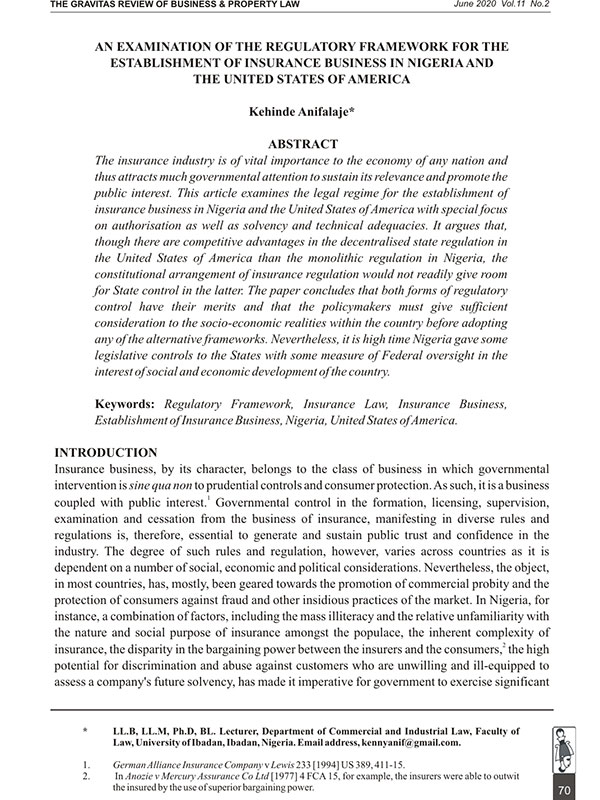
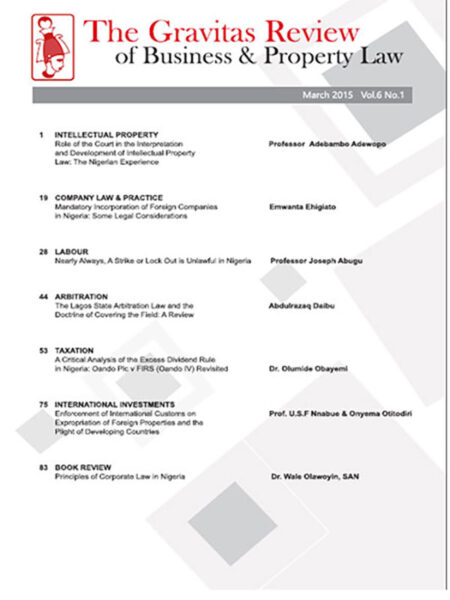
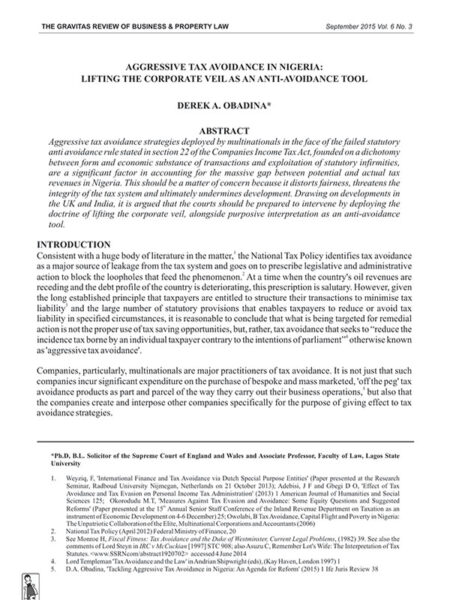
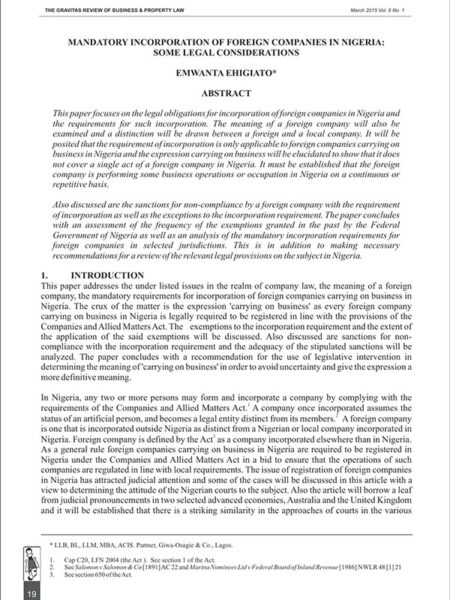


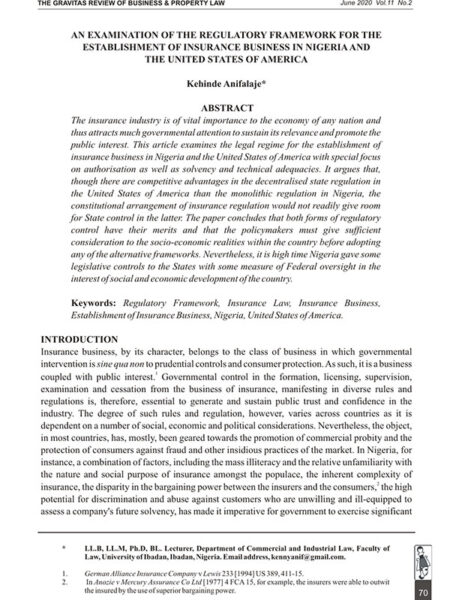
Reviews
There are no reviews yet.